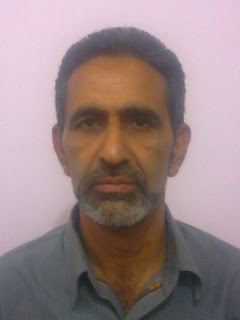DECLARATION OF
PLEBISCITE BY THE UNITED NATIONS FOR STATE OF JAMMU AND KASHMIR ON JANUARY 5,
1949:
HABIB YOUSAFZAI, KASHMIR DIASPORA ALLIANCE
The United Nations Commission for India and Pakistan, Having received from the Governments of India and Pakistan, in communications dated 23 December and 25 December 1948, respectively, their acceptance of the following principles which are supplementary to the Commission's Resolution of 13 August 1948:
1. The question of the accession of the State of Jammu and Kashmir to India or Pakistan will be decided through the democratic method of a free and impartial plebiscite;
2. A plebiscite will be held when it shall be found by the Commission that the cease-fire and truce arrangements set forth in Parts I and II of the Commission's resolution of 13 August 1948 have been carried out and arrangements for the plebiscite have been completed;
3.
(a) The Secretary-General of the United Nations will, in agreement with the Commission, nominate a Plebiscite Administrator who shall be a personality of high international standing and commanding general confidence. He will be formally appointed to office by the Government of Jammu and Kashmir.
(b) The Plebiscite Administrator shall derive from the State of Jammu and Kashmir the powers he considers necessary for organizing and conducting the plebiscite and for ensuring the freedom and impartiality of the plebiscite.
(c) The Plebiscite Administrator shall have authority to appoint such staff of assistants and observes as he may require.
4.
(a) After implementation of Parts I and II of the Commission's resolution of 13 August 1948, and when the Commission is satisfied that peaceful conditions have been restored in the State, the Commission and the Plebiscite Administrator will determine, in consultation with the Government of India, the final disposal of Indian and State armed forces, such disposal to be with due regard to the security of the State and the freedom of the plebiscite.
(b) As regards the territory referred to in A.2 of Part II of the resolution of 13 August, final disposal of the armed forces in that territory will be determined by the Commission and the Plebiscite Administrator in consultation with the local authorities.
5. All civil and military authorities within the State and the principal political elements of the State will be required to co-operate with the Plebiscite Administrator in the preparation for the holding of the plebiscite.
6.
(a) All citizens of the State who have left it on account of the disturbances will be invited and be free to return and to exercise all their rights as such citizens. For the purpose of facilitating repatriation there shall be appointed two Commissions, one composed of nominees of India and the other of nominees of Pakistan. The Commission shall operate under the direction of the Plebiscite Administrator. The Governments of India and Pakistan and all authorities within the State of Jammu and Kashmir will collaborate with the Plebiscite Administrator in putting this provision into effect.
(b) All person (other than citizens of the State) who on or since 15 August 1947 have entered it for other than lawful purpose, shall be required to leave the State.
7. All authorities within the State of Jammu and Kashmir will undertake to ensure, in collaboration with the Plebiscite Administrator, that:
(a) There is no threat, coercion or intimidation, bribery or other undue influence on the voters in the plebiscite;
(b) No restrictions are placed on legitimate political activity throughout the State. All subjects of the State, regardless of creed, caste or party, shall be safe and free in expressing their views and in voting on the question of the accession of the State to India or Pakistan. There shall be freedom of the press, speech and assembly and freedom of travel in the State, including freedom of lawful entry and exit;
(c) All political prisoners are released;
(d) Minorities in all parts of the State are accorded adequate protection; and
(e) There is no victimization.
8. The Plebiscite Administrator may refer to the United Nations Commission for India and Pakistan problems on which he may require assistance, and the Commission may in its discretion call upon the Plebiscite Administrator to carry out on its behalf any of the responsibilities with which it has been entrusted;
9. At the conclusion of the plebiscite, the Plebiscite Administrator shall report the result thereof to the Commission and to the Government of Jammu and Kashmir. The Commission shall then certify to the Security Council whether the plebiscite has or has not been free and impartial;
10. Upon the signature of the truce agreement the details of the foregoing proposals will be elaborated in the consultations envisaged in Part III of the Commission's resolution of 13 August 1948. The Plebiscite Administrator will be fully associated in these consultations;
Commends the Governments of India and Pakistan for their prompt action in ordering a cease-fire to take effect from one minute before midnight of 1 January 1949, pursuant to the agreement arrived at as provided for by the Commission's Resolution of 13 August 1948; and
Resolves to return in the immediate future to the Sub-continent to discharge the responsibilities imposed upon it by the Resolution of 13 August 1948 and by the foregoing principles.










